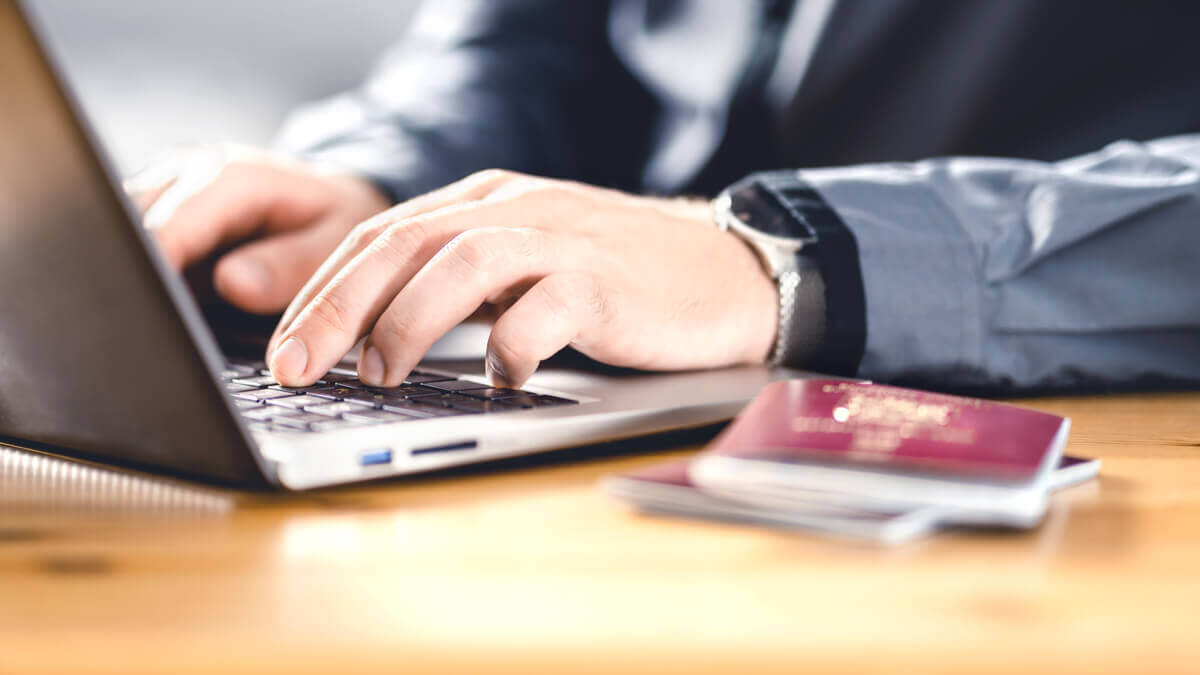How to open a bank account online in Australia: Eligibility, steps, and top providers
Wondering if you can open a bank account online in Australia? Discover the options available and how to open a bank account online.

If you are looking to open a bank account in Australia, you’re likely to run into the 100 point identification system during the process. Read on to learn what it is and how it works so you can open a bank account with ease.
| 💸 Hold over 40 currencies in your account and spend at the mid-market exchange rate with the Wise card while abroad. |
|---|
Learn more about the
Wise Account
The 100 point system is a way to show verification documents for citizens and non-citizens alike in Australia. The Australian government and other entities have allotted points to different identification documents, ranging from 25 to 70 points. To pass the verification stage when opening something new, your package of documents must equal over 100 points.
The documents can be a combination of bank statements showing your proof of address, a Centrelink card or a passport with your name and photograph, for example.
Your documents must be valid and not expired or cancelled to qualify. For certain cases, a foreign-issued document is allowed.
In order to combat transaction fraud and money laundering in the financial system, the Australian government instituted the 100 point system to verify individuals and companies. The points method helps banks verify new customers to the bank – so in short – you are who and you say you are. ¹
The 100 point system can also be required to open a business bank account.
| Read more: Best banks for international students in Australia |
|---|
The type of document is going to determine the number of points it’s valued for - those with the highest points are typically considered primary documents.
Here are the general point values associated with each document:³ ⁴ ⁵
| Type of documents | Point value |
|---|---|
| Australian-government issued driver’s licence | 70 |
| Passport (Australian or foreign) | 70 |
| Immicard | 70 |
| Birth certificate | 70 |
| Citizenship certificate | 70 |
| Centrelink card | 40 |
| University education ID card | 40 |
| Mortgage documents | 35 |
| Bank statements | 25 |
| Rent or utility records (within the last 6 months) | 25 |
| Car registration | 25 |
To pass the verification, you must have over 100 points and you may be asked for primary and secondary documents. The name on the document must match the name you want to have on your bank account, or at least have the supporting documents to show a name change.²
In most cases, you may be asked to present the originals, or scan and upload them to an online system.
In some organisations, certain documents may not have the same points allotted to a document as in other places. For instance, the Queensland government gives a passport only 50 points.
So read over the requirements and double-check the local points value before submitting your documents to avoid delaying the process.⁶
In addition to banking, you may use the 100 point system when joining a new company, dealing with the police or registering for membership with organisations, for example.⁷ ⁸ ⁹
On top of meeting the 100 points needed, certain organisations may have hierarchies when it comes to the documents. You may be asked to provide at least one document that is 50 points or higher plus lesser valued ones, rather than all the documents being of lesser amounts. Ensure to read the fine print so your documents don’t get rejected at submission.
It is also a good idea to have your documents up to date and easy to find when you need them.
Many banks will let Australian residents or valid visa holders upload the required documents online, while new immigrants may be required to bring their documents to a bank branch to be verified in person. ¹⁰
If you aren’t able to upload your documents, you may be asked to go to a bank branch for verification too.
For certain categories, foreign-issued documents are allowed. This can include a foreign-issued passport or driver’s licence, as long as they are not expired. You may also be asked to show your Immicard or recent travel documents as well.
Foreign documents will not be accepted in other cases, like when the bank is looking for proof of a local address. You will need to show a local registered address on a bank statement, utility or rent bill.
A foreign-issued birth certificate as a primary document is admissible, however. All documents should be translated into English.¹¹
Banks may ask for documents with a photograph, so ensure that you can provide a substitute if your document from abroad does not have one attached.
| Read more: Dormant inactive bank accounts in Australia |
|---|
There are several reasons why someone may not have the required documents. Some of those not having all the documents can include:
There can be other reasons why someone may struggle to provide the documents needed for the 100 point system. In that case, banks can use an alternative identification system to verify the individual while also meeting anti-money laundering requisites.
Examples of acceptable documents can include:
Applicants may need to provide more than one of these documents to meet compliance needs. The bank can also decide how many documents will be needed based on a risk assessment of the applicant. ¹²
The Australian Transaction Reports and Analysis Centre (AUSTRAC), which overlooks financial transactions, provides additional information on the process if standard documentation is not available.
If you’re looking for a flexible multi currency account that is great for daily spending in Australia and overseas, the Wise Account is worth a look.
The Wise Account can be opened for free and allows you to hold money in over 40 currencies and send money to 160 countries. You can also order local account details for 10 world currencies including AUD.
You can also use the Wise Debit card to spend money in 150+ countries without markups and hidden transaction fees. The mid-market rate is used when switching between currencies, helping to keep fees low when sending money internationally. It’s the rate you see on a Google conversion search.
Join over 16 million customers currently enjoying Wise. It’ll only take a few minutes to register and see what’s inside.
Register your Wise account
in minutes 🚀
| Please see Terms of Use for your region or visit Wise Fees & Pricing for the most up-to-date pricing and fee information. |
|---|
Sources:
Sources checked on: 06 December 2023
*Please see terms of use and product availability for your region or visit Wise fees and pricing for the most up to date pricing and fee information.
This publication is provided for general information purposes and does not constitute legal, tax or other professional advice from Wise Payments Limited or its subsidiaries and its affiliates, and it is not intended as a substitute for obtaining advice from a financial advisor or any other professional.
We make no representations, warranties or guarantees, whether expressed or implied, that the content in the publication is accurate, complete or up to date.

Wondering if you can open a bank account online in Australia? Discover the options available and how to open a bank account online.

Compare the best high-interest savings accounts in Australia. Our guide breaks down interest rates, and fees to help you find an account to grow your savings.

Looking for how to open a bank account with Virgin Money in Australia? We’ve got you covered. Here’s the process, fees and what you need to know.

Learn how to close your Revolut Australia account. The steps, options and important need-to-knows before your begin.

If you’re a student juggling study alongside work and social commitments, ensuring you have reliable and easy access to your money is essential. Choosing a...

Coming into student life something you might not think to address straight away is your banking. Many Australian banks offer accounts designed for students,...